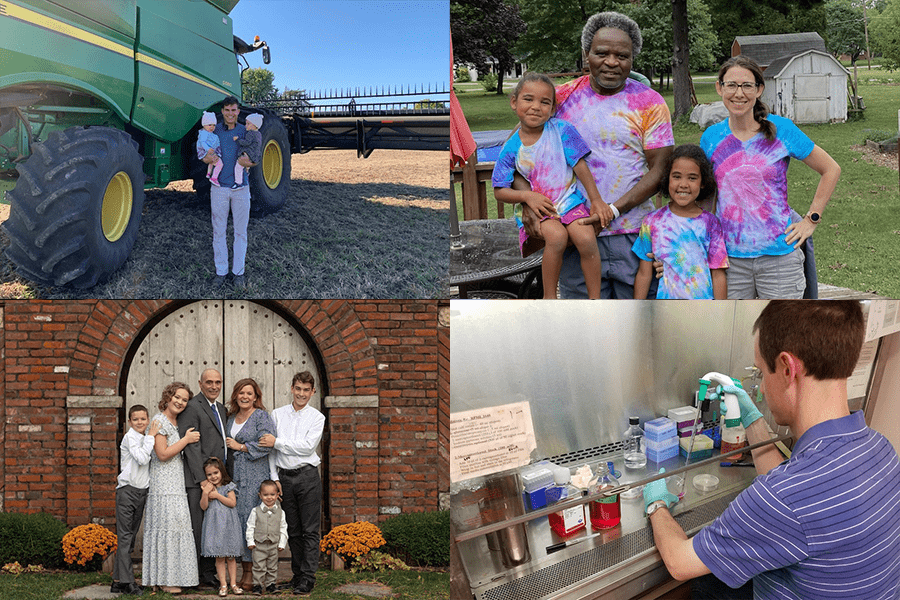Mark Westbroek: Age 37
IU School of Medicine campus: West Lafayette (MS4)
Former career: Research scientist/Chemistry instructor
By the time he became a medical student at Indiana University School of Medicine—West Lafayette, Mark Westbroek had a PhD in medicinal chemistry and molecular pharmacology, plus a wife and five kids.
“It has been interesting to interact with the younger medical students,” said Westbroek, a former medical laboratory and research scientist. “I have been able to forge some good friendships, but I just have a different outlook on life. Being older and more experienced, I feel like I see the bigger picture.”
 He didn’t see it when he was in his 20s. Working in a hospital hematology lab as part of a team diagnosing multiple leukemias, he enjoyed knowing his work was crucial for doctors to correctly diagnose their patients’ conditions. His interest in research led him on an educational path which he envisioned culminating with a career at a pharmaceutical company working in cancer drug development.
He didn’t see it when he was in his 20s. Working in a hospital hematology lab as part of a team diagnosing multiple leukemias, he enjoyed knowing his work was crucial for doctors to correctly diagnose their patients’ conditions. His interest in research led him on an educational path which he envisioned culminating with a career at a pharmaceutical company working in cancer drug development.
“Although I enjoyed the research, I always felt like something was missing,” he said. “Over time, I realized that I was missing the human component of cancer.”
Westbroek realized he needed to widen his lens to see the bigger picture of a more fulfilling career as a physician-scientist. He took a job as a college chemistry teacher as he studied for the medical entrance exam.
“My long-term goal is to establish an academic medicine career in pediatric hematology-oncology,” he said. “This will allow me to combine all my experience by doing cancer research, teaching and working with patients, including patients with leukemia, which is what originally led me to this path.”
 As a parent, Westbroek will be able to relate to the concerns of his patients’ families. He and his wife had their sixth child during his medical school years.
As a parent, Westbroek will be able to relate to the concerns of his patients’ families. He and his wife had their sixth child during his medical school years.
“Since I had already completed my OB-GYN rotation, the doctor let me deliver my son!” he said.
The downside of having kids in medical school? “I am much more sleep deprived from children waking me up at night.”
Westbroek now sees how all of his prior experiences were like puzzle pieces fitting together to make a career in academic medicine.
“Gaining experience before medical school has led me to a different end goal than I would have pursued earlier in life, and I believe this path will be more meaningful,” he said.

